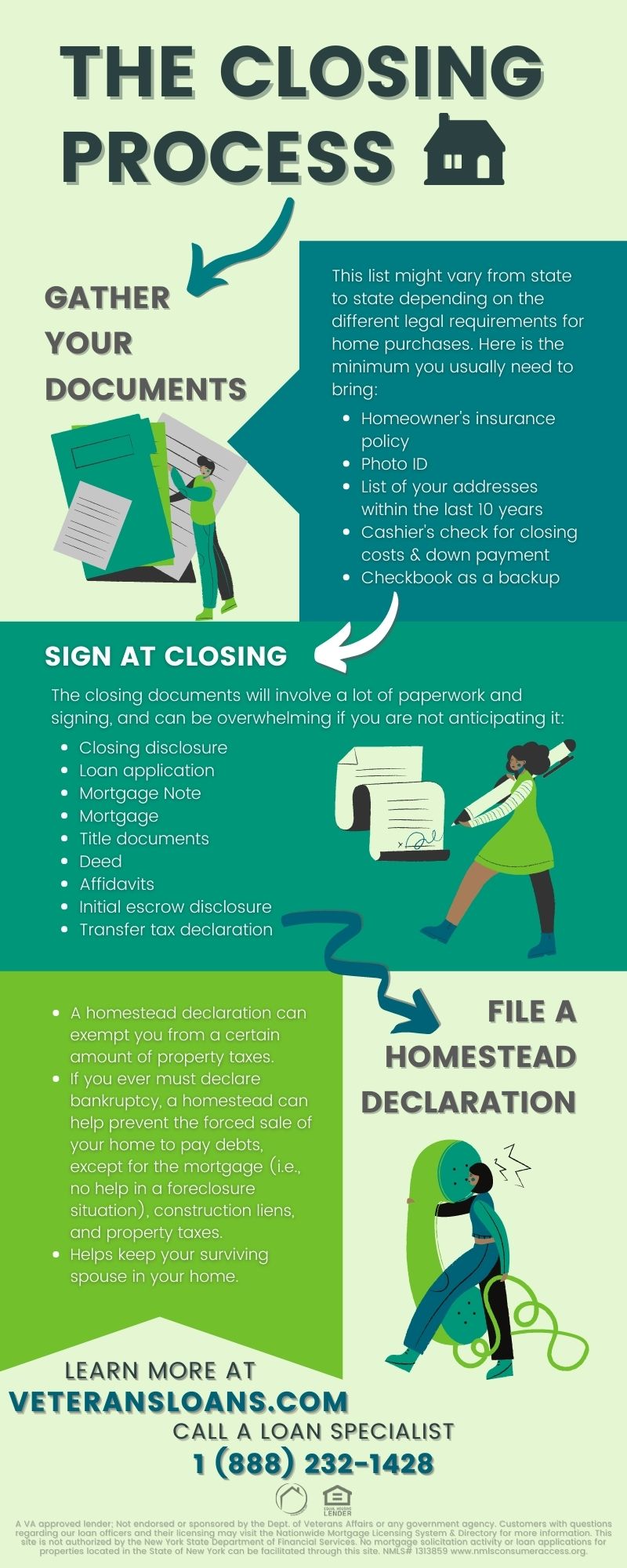How Does The Closing Process Work?
When you contact a loan specialist and are pre-approved for a mortgage, the home purchase process begins. From that point on, your loan specialist works with you to get everything prepared for the closing process. A lot of documentation and information is necessary to get your loan application approved and clear to close, but what does the actual closing process look like?
The closing process, or settlement, is where ownership of your new home transfers from the seller to you. It is an involved process where a lot of money is exchanged, and a lot of documents are signed. Understanding this process and being prepared will help you know what to expect and alleviate a lot of the stress associated with the closing process.
As soon as you and the seller sign a purchase agreement, everything you do from that point is to prepare for closing. The timeline for this is usually anywhere from 30-60 days depending on the market.
Prior to closing, you will have selected a title company and/or real estate attorney, purchased homeowner’s insurance, purchased title insurance, met all the conditions of your loan, prepared to move, reviewed the closing disclosure, and completed a final walkthrough of your new home.
Gather Your Documents
Now it is time to gather the documents you need to successfully complete closing. The closing agent (this will be your title company or real estate attorney) will send you a list of everything you will need to bring to the closing. This list might vary from state to state depending on the different legal requirements for home purchases. Here is the minimum you usually need to bring:
- Homeowners Insurance Policy for the purchase property.
- A valid Photo ID, a driver’s license, or a passport will suffice.
- List of all your addresses within the last 10 years.
- Cashier’s Check for closing costs and down payment if you haven’t paid ahead of time.
- Your checkbook as a backup.
If you have any questions or concerns about what you need to bring to closing, reach out to your title company and your real estate attorney. Not all states require you to have a real estate attorney, but it may be worthwhile to hire one all the same, especially if you are in an unusual purchase situation.
Sign At Closing
Who needs to be at the closing? You as the borrower will need to be present at closing as well as any co-borrowers on the purchase agreement. If you have a non-borrowing spouse, they may need to be present to sign as well, depending on what state you live in and the legal requirements for home purchases. Reach out to your real estate agent prior to closing and verify who all needs to be present at closing.
The next step is to arrive at closing on your scheduled closing day and time to sign the closing documents. The location, date, and time of closing are determined when you and the seller sign the initial purchase agreement. This date could be subject to change if all loan requirements are not met or if there are any outstanding issues, repairs, inspections, etc. that delay closing.
As for the closing documents, this will involve a lot of paperwork and signing and can be overwhelming if you are not expecting it.
- Closing disclosure
- Loan application
- Mortgage note
- Mortgage
- Title documents
- Deed
- Affidavits
- Initial escrow disclosure
- Transfer tax declaration
Once you have signed all these documents, it will be time to receive your keys to your new home!
File a Homestead Declaration
A homestead declaration or exemption registers your home with both the federal and state governments as your primary residence. A homestead exemption also adds other levels of protection to your home. The federal protections are the same for all states, but there are states that provide more state-level protection than others.
There are typically three kinds of protection in a homestead declaration:
- Can exempt you from a certain amount of property taxes.
- If you ever must declare bankruptcy, a homestead can help prevent the forced sale of your home to pay debts, except for the mortgage (i.e., no help in a foreclosure situation), construction liens, and property taxes.
- Helps keep your surviving spouse in your home.
After closing is completed and you have the keys to your new home, it is in your best interest to file a homestead declaration or homestead exemption. In some states, a homestead is automatic, but it is always worthwhile to doublecheck with your real estate agent or closing agent about it.
To file a homestead declaration, contact your county assessor’s office. If a real estate attorney is overseeing your purchase, they might include filing for a homestead in their fee and file it for you during the closing process.
Contact a Loan Specialist
Have more questions about the closing process? Looking to get pre-qualified? Contact a loan specialist at VeteransLoans.com to receive your free quote and learn more about how to be fully prepared for your home purchase and loan approval process.

